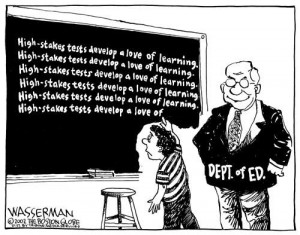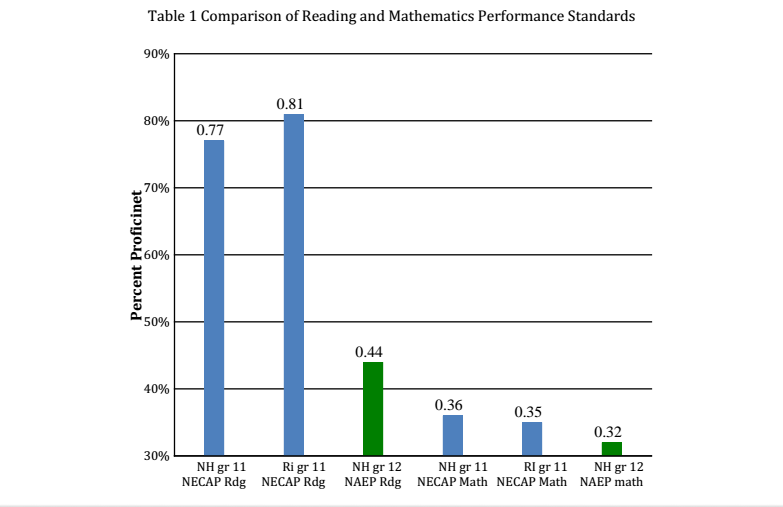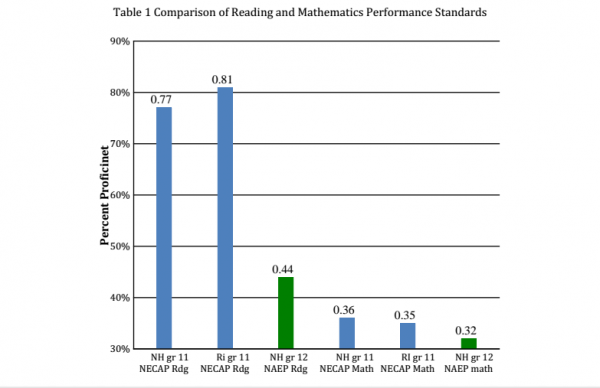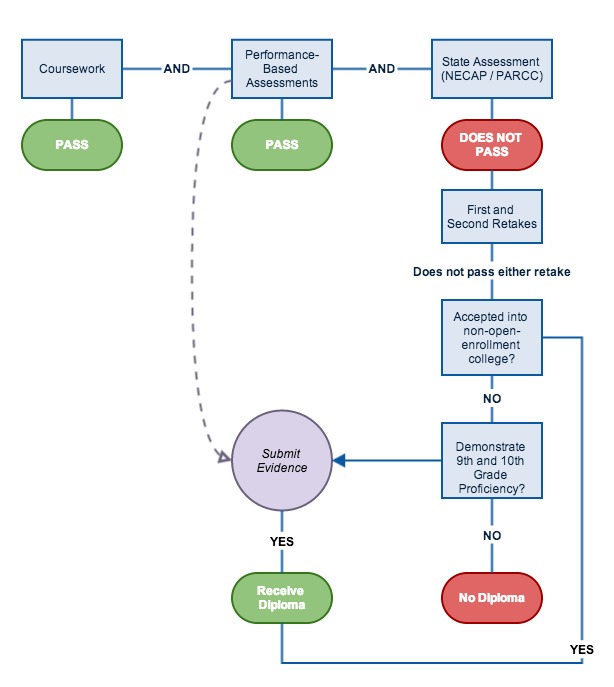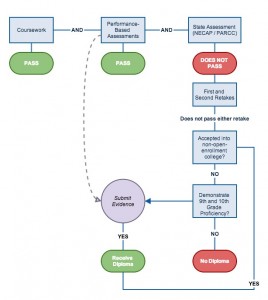 Deborah Gist’s Ocean State Voyage has ended and her replacement Dr. Ken Wagner begins his tenure as Rhode Island’s Commissioner of Elementary and Secondary Education today. The hiring process, with its “listening sessions” and its search for a gentler more accommodating commissioner, signals a departure from the Gist/Mancuso regime. It remains to be seen if this difference is substantive or merely cosmetic. Governor Raimondo promised an open and inclusive hiring process.
Deborah Gist’s Ocean State Voyage has ended and her replacement Dr. Ken Wagner begins his tenure as Rhode Island’s Commissioner of Elementary and Secondary Education today. The hiring process, with its “listening sessions” and its search for a gentler more accommodating commissioner, signals a departure from the Gist/Mancuso regime. It remains to be seen if this difference is substantive or merely cosmetic. Governor Raimondo promised an open and inclusive hiring process.
Students, teachers, parents, school committee representatives, board members, administrators, charter school advocates and union leaders known or recommended to the Governor were invited to attend so-called “listening sessions” and make their views known. Nine listening sessions were held with the Governor and the new Board of Education Chairwoman Barbara Cottam, among the listeners. Discussions focused on the desirable characteristics of a prospective commissioner. Participation was by invitation only.
Raimondo took charge of the search for Gist’s replacement with the blessing of the BOE and its new chairwoman. In May, Brad Inman, the governor’s Director of Constituent Services, wrote in response to my queries: “The Board of Education asked the Governor’s office to do the initial vetting and present the Board with a list of finalists for their consideration. It will then be the Board who selects the Commissioner.”
When I tried to find out who, in the Governor’s office, was doing the vetting (or had the educational expertise to do so) nobody was at liberty to tell me.
At a May 14 BOE Meeting, Chairwoman Cottam informed the board that “candidates are currently being interviewed and she expects a finalist(s) will be sent to the Board from the Governor’s office shortly.” The “finalist(s)” indicates that Cottam didn’t know whether a group of candidates or the one final choice was to be passed on to the Board for their approval. At the subsequent meeting, she reported that “interviews for the next Commissioner of Elementary and Secondary Education have continued and that there are many great candidates.” Who was doing the interviewing and who were the great candidates?
After the much touted “listening sessions” the search sank from public view. There was no BOE Search Committee and, as far as I can discover, no new job description that incorporated the findings of the listening sessions. The one that I received from Angela Teixeira, special assistant to the commissioner and liaison to the Board of Education, is dated September 2004.
As the Warwick Beacon reported, comments made by Kevin Gallagher, the governor’s deputy chief of staff, indicated why what he called a “help wanted ad” was rejected. From the Beacon: “Instead, the decision was made to define the characteristics the next leader of the Rhode Island Department of Education (RIDE) ought to possess. The administration, Gallagher said, intends to use that information to identify people who ‘fit that profile,’ rather than ‘sitting back passively’ and waiting for candidates to apply.”
Ken Wagner was recruited in much the same way that Deborah Gist was recruited by the Carcieri administration and his BOE (then the Board of Regents) in 2009. What Governor Carcieri wanted was a prominent “reformer” to head R.I.’s education establishment. This seems to be what Governor Raimondo wanted too, although she didn’t want Gist. I suppose that she also wants criticism of high-stakes testing to stop, parental and student opt-outs to end, the free proliferation of charter schools and no more complaints about the PARCC or the Common Core. I suppose, too, that she believes Dr. Wagner can help with these things.
The R.I. law governing the appointment of education commissioners specifies that they be chosen by the (gubernatorially appointed) Board of Education, whereas other positions at the same level–directors, for example–are straight-forward gubernatorial appointments. This discrepancy caught the attention of East Side Senator Gayle Goldin, who introduced the bill to change it which was passed by the R.I. Senate last session. The Senate voted that in the future the Governor alone should select Commissioners of Education, although this will not become law until it is also passed by the R.I. House. The Governor’s choice would then be subject to the advice and consent of the R.I. Senate.
The advice and consent of the Senate versus the approval of the board of education may seem insignificant, no great improvement to the selection process. But it is, I think, in involving democratically elected representatives who are responsive to their constituents and familiar with the schools in their districts. Having witnessed both board meetings and meetings of legislative education committees, I’d say the senators are often better informed, more independent of the RIDE bureaucracy, and certainly more approachable than appointed board members.












